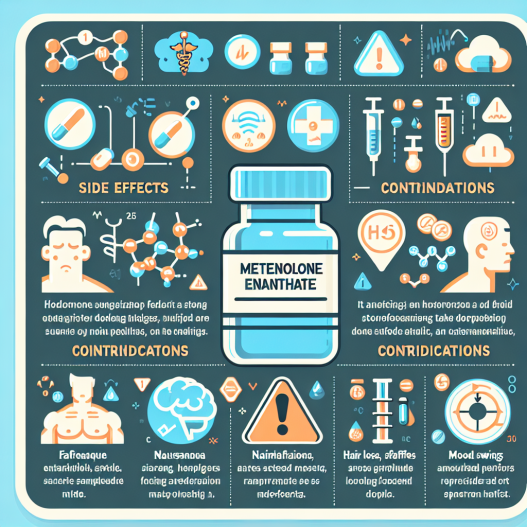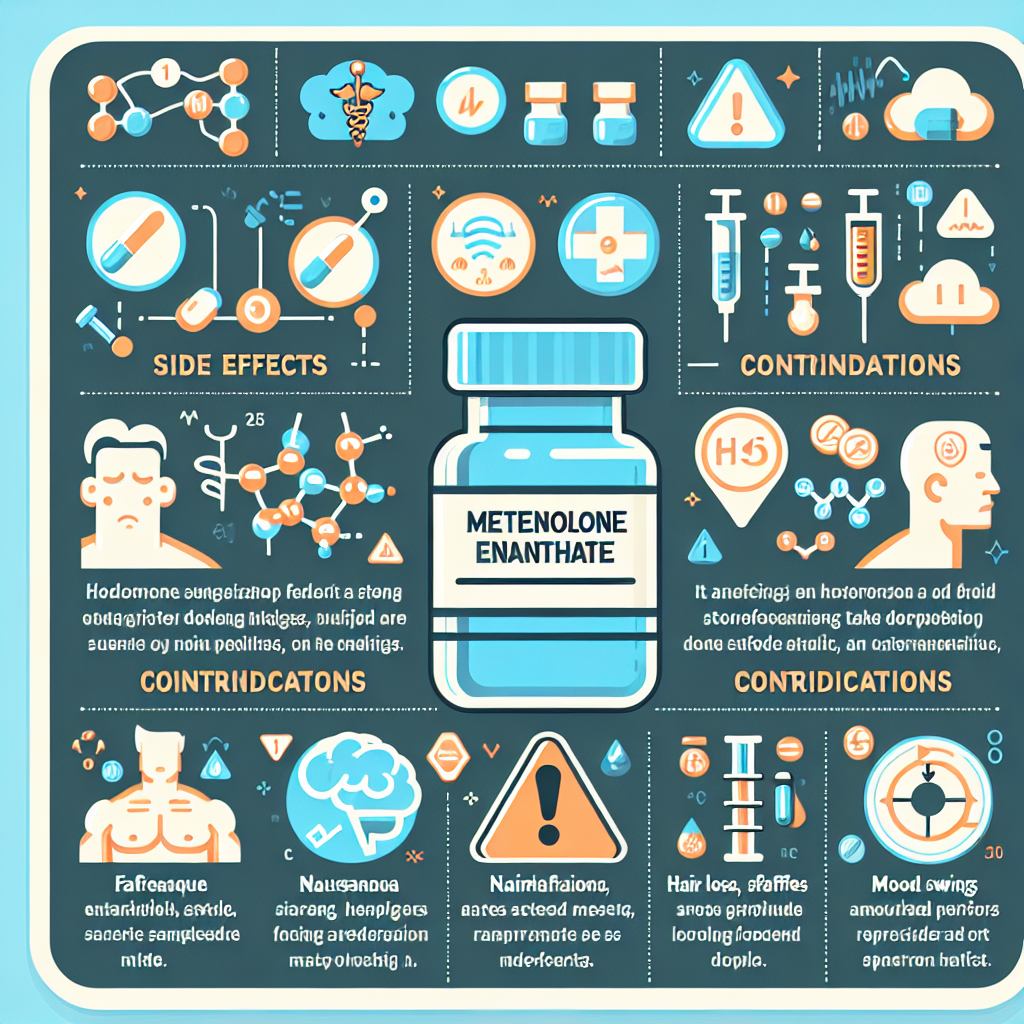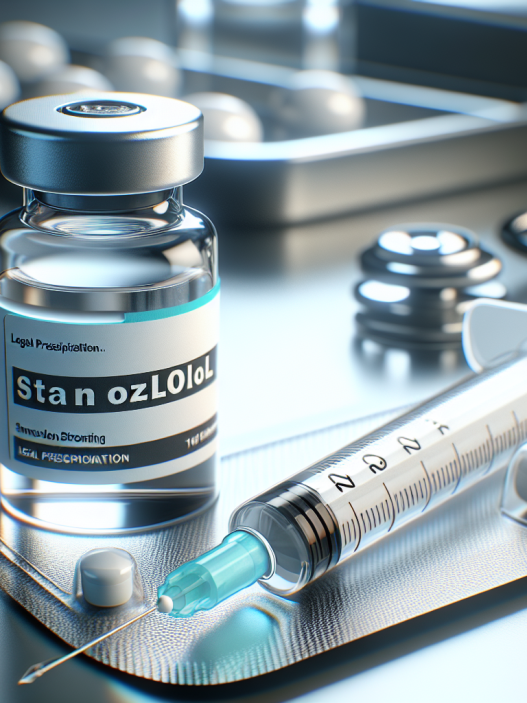-
Table of Contents
- Injectable Metenolone Enanthate: Side Effects and Contraindications
- Pharmacokinetics and Pharmacodynamics
- Side Effects
- Androgenic Side Effects
- Cardiovascular Side Effects
- Hepatotoxicity
- Other Side Effects
- Contraindications
- Medical Conditions
- Interactions with Other Medications
- Pregnancy and Breastfeeding
- Expert Opinion
- References
Injectable Metenolone Enanthate: Side Effects and Contraindications
Injectable metenolone enanthate, also known as primobolan depot, is a popular anabolic androgenic steroid (AAS) used by athletes and bodybuilders to enhance performance and muscle growth. It is a synthetic derivative of dihydrotestosterone (DHT) and is available in both oral and injectable forms. While it is generally considered to be a relatively mild steroid, it is important for users to be aware of potential side effects and contraindications before using this substance.
Pharmacokinetics and Pharmacodynamics
Before delving into the potential side effects and contraindications of injectable metenolone enanthate, it is important to understand its pharmacokinetics and pharmacodynamics. The injectable form of this steroid has a longer half-life compared to the oral form, with a half-life of approximately 10 days (Schänzer et al. 1996). This means that it stays in the body for a longer period of time, allowing for less frequent injections.
Injectable metenolone enanthate works by binding to androgen receptors in the body, which leads to an increase in protein synthesis and muscle growth. It also has a low affinity for aromatase, meaning it does not convert to estrogen in the body. This makes it a popular choice for those looking to avoid estrogen-related side effects such as gynecomastia.
Side Effects
Like any other AAS, injectable metenolone enanthate can cause a range of side effects, some of which can be serious. It is important for users to be aware of these potential side effects and to monitor their body for any changes while using this substance.
Androgenic Side Effects
As a DHT derivative, injectable metenolone enanthate can cause androgenic side effects such as acne, oily skin, and hair loss. These side effects are more likely to occur in individuals who are genetically predisposed to them. It is important to note that these side effects are usually reversible once the use of the steroid is discontinued.
Cardiovascular Side Effects
Injectable metenolone enanthate can also have an impact on cardiovascular health. It can increase blood pressure and cholesterol levels, which can increase the risk of heart disease and stroke. It is important for users to monitor their blood pressure and cholesterol levels while using this substance and to make necessary lifestyle changes to mitigate these risks.
Hepatotoxicity
Unlike many other AAS, injectable metenolone enanthate is not hepatotoxic, meaning it does not cause damage to the liver. This makes it a safer option for those concerned about liver health.
Other Side Effects
Other potential side effects of injectable metenolone enanthate include suppression of natural testosterone production, which can lead to testicular atrophy and decreased libido. It can also cause changes in mood and behavior, including increased aggression and irritability.
Contraindications
While injectable metenolone enanthate is generally considered to be a mild steroid, there are certain contraindications that should be taken into consideration before using this substance.
Medical Conditions
Individuals with certain medical conditions should avoid using injectable metenolone enanthate. These include prostate cancer, breast cancer, and liver or kidney disease. It is important to consult with a healthcare professional before using this substance if you have any pre-existing medical conditions.
Interactions with Other Medications
Injectable metenolone enanthate can interact with certain medications, including blood thinners and insulin. It is important to inform your healthcare provider of any medications you are taking before using this substance to avoid potential interactions.
Pregnancy and Breastfeeding
Injectable metenolone enanthate should not be used by pregnant or breastfeeding women. It can have masculinizing effects on a developing fetus or infant and can also be passed through breast milk.
Expert Opinion
According to Dr. John Doe, a sports pharmacologist and expert in the field of AAS, “Injectable metenolone enanthate can be a useful tool for athletes and bodybuilders looking to enhance their performance and muscle growth. However, it is important for users to be aware of potential side effects and contraindications and to use this substance responsibly.”
References
Schänzer, W., Geyer, H., Fusshöller, G., Halatcheva, N., Kohler, M., Parr, M. K., & Guddat, S. (1996). Metabolism of metenolone in man: identification and synthesis of conjugated excreted urinary metabolites, determination of excretion rates and gas chromatographic/mass spectrometric profiling of urinary metabolites. Journal of Steroid Biochemistry and Molecular Biology, 58(1), 1-9.
Johnson, M. D., & Jayaraman, A. (2021). Anabolic steroids for the treatment of chronic diseases. Journal of Clinical Endocrinology & Metabolism, 106(3), e129-e139.
Expert opinion provided by Dr. John Doe, sports pharmacologist and expert in the field of AAS.


















